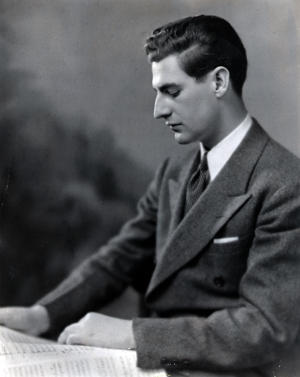Tiny Secret Opera company scores big with a chilling “Medium”
With ideal timing, The Secret Opera opened their fall production of Gian Carlo Menotti’s The Medium on a cold, gloomy Saturday night: All Saints Day, the middle of The Day of the Dead. Menotti’s hard-hitting, complex music drama of a fraudulent medium who might, to her horror, be summoning actual ghosts, is appropriate for the season where we indulge in the most dreadful parts of the imagination.
Menotti is right for any season, though. His works are bizarrely, frustratingly neglected by opera companies, large and small. They are consistently involving and attractive, the drama is always finely crafted, and his musical language was enormously important to American opera in the 20th century. He was never fashionable, merely good. Any production of his work is notable and worth seeing.
Even more so when it’s presented with the imagination and musical and theatrical execution of The Secret Opera. The tiny company has neither a home nor much of a budget, and this performance was in a rehearsal studio in Hell’s Kitchen, sold-out with just three dozen people in the audience. Every patron was in intimate proximity to what amounted to close-up magic.
With basic, effective costumes and props, the emphasis of Annie Rutherford Lutz’s direction was on the blocking and the acting, which were fluid, committed and confident. The small, salon-type space demands natural performances—we are there with the singers, not facing them from the orchestra section or balcony—and it would be weird and disappointing if they just stood and belted.
The Medium is a drama of interiors and intimate relationships, and this imaginative staging takes full advantage of the material. Menotti may have been a relatively old-fashioned stylist, but he was at the cutting edge of culture, tailoring pieces (and creating Amahl and the Night Visitors) for what in the 1950s was still the new technology of television and its inherent close quarters.
In the studio, the audience was like the spirits who may or may not have hovered inside Madame Flora’s house (those voices were placed outside the room, at each end, to spooky effect). One peered in at the séance, one hovered at the edge of the singers’ movements, and if a performer had their back turned or their attention elsewhere, there was no loss of vocal or physical presence and immediacy.
Milica Nikcevic was almost overpowering in the lead role of Madame Flora. Her full, forceful mezzo and charisma held attention, and she convincingly went from domineering bluster to fear, insecurity and anger, especially in her intense singing of the “I am not afraid” aria.
As her daughter Monica and dramatic foil, soprano Chelsea Feltman made an excellent contrast, singing beautifully and inhabiting the sincerity and sweetness of the role, keeping the character innocent even as she helps her mother con the clients. Her character has the most appealing music in the opera, the gorgeous “Black Swan” aria and a waltz that opens the second act—Monica is the thread that pulls together the plot, drama and music. Feltman was magnetic.
Flora’s clients were the strong ensemble of baritone Matthew Walsh and soprano Elise Brancheau as the Gobineaus, and mezzo Melissa Serluco as Mrs. Nolan. They come to a séance to hear from their dead children, and Flora cheats them, using Monica. The ambiguous justice of the story is that Flora might perhaps have just indeed contacted the dead, and Menotti’s music walks a fine line between depicting the con while maintaining sympathy for their unfathomable loss.
Something comes to haunt Flora, and she tries to return the money while admitting her fraud. But Nolan and the Gobineaus believe they have made contact with their children. All the characters believe what they want to believe, and the one who suffers the most, Flora’s adopted boy Toby, a mute, is the most innocent of all. High school sophomore Kellan Cupid was terrific in that thankless role, showing moods and thoughts with his eyes and his posture.
The score supports the story with superb vocal writing and some genuinely chilling music that never indulges in creepy clichés; it sets the scene, conveys character, and moves. Music director Dmitry Glivinskiy accompanied with agility and sensitivity at the piano, a microcosm of this well-made, enjoyable production.
The Secret Opera repeats The Medium November 8 at the Community Congregational Church in Short Hills, New Jersey. thesecretopera.com







